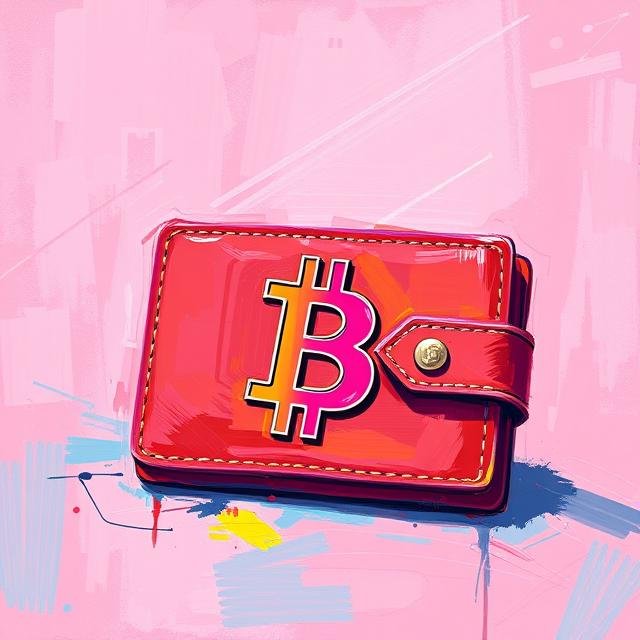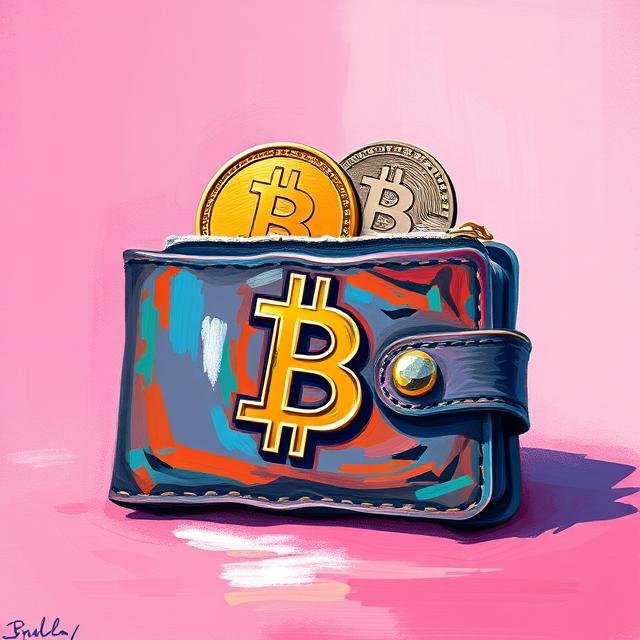So, you’re diving into the exciting world of cryptocurrency in 2025! That’s awesome. But before you go all-in on Bitcoin, Ethereum, or the next big altcoin, there’s a super important step: figuring out where you’re going to keep your digital assets safe. That’s where a crypto wallet comes in. If you’re searching for the best crypto wallet for beginners, you’re in the right place. This guide will break down what a crypto wallet 2025 is, why you need one, and introduce some top user-friendly options to get you started securely.
- What is a Crypto Wallet Anyway? Your Digital Piggy Bank Explained
- What Makes a Crypto Wallet “Beginner-Friendly” in 2025?
- Top Crypto Wallets for Beginners in 2025: Our Picks
- Exodus Wallet: The All-Rounder with a Great Design
- Coinbase Wallet: Simple and Integrated
- Trust Wallet: Mobile-First and Feature-Rich
- MetaMask: The Gateway to Ethereum and Beyond
- Zengo Wallet: Keyless Security for Simplicity
- Ledger Nano S Plus or Ledger Nano X: Top-Tier Hardware Security
- Trezor Model One or Trezor Safe 3: Open-Source Hardware Security
- Electrum: Bitcoin Focus (for the Bitcoin Minimalist)
- Phantom Wallet: Your Portal to Solana
- Guarda Wallet: Broad Multi-Currency Support
- Essential Crypto Security Tips for Beginners Using Wallets
- Choosing Your First Crypto Wallet: Key Considerations Summarized
- Moving Beyond Your First Wallet: When to Upgrade or Diversify
- The Importance of Doing Your Own Research (DYOR)
- Final Thoughts: Your Secure Start in the Crypto World
- FAQs: Your Beginner Crypto Wallet Questions Answered
- References
What is a Crypto Wallet Anyway? Your Digital Piggy Bank Explained
Think of a crypto wallet not as a physical wallet holding cash, but more like a specialized bank account for your digital money. It doesn’t actually “store” your coins in one place. Instead, it holds your private keys – secret codes that prove you own your crypto and allow you to make transactions. It also manages your public keys, which you use to receive crypto (like an email address for money). Understanding this is key to secure cryptocurrency storage solutions.
Why Beginners Absolutely Need a Crypto Wallet
- Security: Leaving your crypto on an exchange (where you bought it) can be risky due to hacks. A personal wallet gives you more control.
- Control: With many wallets (especially non-custodial ones), you truly own your crypto because you control the private keys.
- Access to Web3: Many wallets allow you to interact with decentralized applications (dApps), NFTs, and DeFi platforms.
Hot Wallets vs. Cold Wallets: A Quick Intro for Newbies
- Hot Wallets: These are connected to the internet (software, mobile, web). They’re convenient for frequent transactions but are more vulnerable to online threats. Great for small amounts.
- Cold Wallets: These are kept offline (usually hardware devices). They offer top-notch digital asset protection for larger amounts you want to store long-term. Many beginners start with a user-friendly hot wallet and might consider a cold wallet as their holdings grow.
What Makes a Crypto Wallet “Beginner-Friendly” in 2025?
When looking for the best crypto wallet for beginners, certain features make all the difference:
- Easy Setup and Use: A clean, intuitive interface without confusing jargon.
- Strong Security Features (but simple to manage): Things like PIN codes, biometric login, and clear instructions for backing up your wallet.
- Good Customer Support or Community: Helpful if you get stuck.
- Multi-Currency Support: Ability to hold various popular cryptocurrencies.
- Clear Backup and Recovery Process: Usually involving a “seed phrase” or “recovery phrase” – a list of words that can restore your wallet if you lose your device.
Top Crypto Wallets for Beginners in 2025: Our Picks
Based on ease of use, security, and features suitable for newcomers, here are some of the best crypto wallet 2025 options:
Exodus Wallet: The All-Rounder with a Great Design
- Type: Software (Desktop & Mobile), Hot Wallet
- Why it’s good for beginners: Exodus is renowned for its beautiful and incredibly user-friendly crypto interface. It supports a vast number of cryptocurrencies (hundreds!), making it a versatile multi-currency wallet. You can easily swap coins within the wallet and even stake some for rewards. It also offers integration with Trezor hardware wallets if you decide to upgrade your security later.
- Use Case: Perfect for beginners who want to manage a diverse portfolio of coins on both their computer and phone, and appreciate a visually appealing experience. Ideal for easy crypto management and viewing NFTs.
Coinbase Wallet: Simple and Integrated
- Type: Software (Mobile & Browser Extension), Hot Wallet, Non-Custodial
- Why it’s good for beginners: If you’re already using or considering the Coinbase exchange, Coinbase Wallet offers seamless integration. It’s designed to be very intuitive, supports thousands of assets including NFTs, and provides access to dApps. Being non-custodial, you control your private keys, which is a step up in security from keeping funds on the exchange itself.
- Use Case: Excellent for new users familiar with the Coinbase ecosystem or those wanting a straightforward way to explore Web3, DeFi platforms, and store various tokens, including Bitcoin and Ethereum.
Trust Wallet: Mobile-First and Feature-Rich
- Type: Software (Mobile), Hot Wallet, Non-Custodial
- Why it’s good for beginners: Owned by Binance (a major crypto exchange), Trust Wallet is a very popular mobile crypto app that supports a massive range of blockchains and tokens. It’s designed for simplicity and offers features like staking, an in-app dApp browser, and NFT storage.
- Use Case: Ideal for beginners who primarily use their mobile phones for crypto activities, want to explore dApps and NFTs, and need support for many different coins.
MetaMask: The Gateway to Ethereum and Beyond
- Type: Software (Browser Extension & Mobile), Hot Wallet, Non-Custodial
- Why it’s good for beginners (with a slight learning curve): MetaMask is the go-to wallet for interacting with the Ethereum blockchain and most dApps, DeFi protocols, and NFT marketplaces. While it might seem a bit more technical at first, its widespread adoption means tons of online guides are available. It’s an essential Ethereum wallet for easy setup if you’re keen on Web3.
- Use Case: Best for beginners wanting to dive into DeFi, NFTs, and the broader Ethereum ecosystem. Also supports other EVM-compatible chains.
Zengo Wallet: Keyless Security for Simplicity
- Type: Software (Mobile), Hot Wallet, Non-Custodial (using MPC)
- Why it’s good for beginners: Zengo stands out because it uses Multi-Party Computation (MPC) instead of a traditional seed phrase for recovery. This can be less intimidating for beginners worried about losing a long list of words. It offers 3-factor recovery and a clean interface.
- Use Case: Great for beginners who prioritize ease of use and want a different approach to wallet security and recovery without managing a seed phrase.
Ledger Nano S Plus or Ledger Nano X: Top-Tier Hardware Security
- Type: Hardware Wallet, Cold Wallet
- Why it’s good for beginners (as a next step): While hardware wallets have a slight learning curve and cost money, Ledger devices are known for top-notch security. The Ledger Live app provides a user-friendly interface to manage assets. The Nano S Plus is a great entry-level hardware option.
- Use Case: Highly recommended for beginners who have accumulated a significant amount of crypto they want to store securely long-term. Perfect for peace of mind.
Trezor Model One or Trezor Safe 3: Open-Source Hardware Security
- Type: Hardware Wallet, Cold Wallet
- Why it’s good for beginners (as a next step): Trezor is another highly reputable hardware wallet brand, known for its open-source approach and strong security. The Model One is a cost-effective entry point, while the Safe 3 offers newer features.
- Use Case: Similar to Ledger, Trezor is ideal for beginners serious about secure, long-term storage of their digital assets and who appreciate open-source technology.
Electrum: Bitcoin Focus (for the Bitcoin Minimalist)
- Type: Software (Desktop & Mobile), Hot/Cold options
- Why it’s good for beginners (interested only in Bitcoin): Electrum has been around for a long time and is dedicated solely to Bitcoin. While its interface might not be as flashy as others, it’s known for being lightweight, fast, and secure for Bitcoin storage for newbies. It also offers more advanced features like cold storage setup if you become more technical.
- Use Case: Specifically for beginners who are only interested in holding and transacting with Bitcoin and want a focused, reliable wallet.
Phantom Wallet: Your Portal to Solana
- Type: Software (Browser Extension & Mobile), Hot Wallet, Non-Custodial
- Why it’s good for beginners (interested in Solana): If you’re exploring the Solana ecosystem (known for fast transactions and NFTs), Phantom is the leading wallet. It’s user-friendly and designed specifically for Solana and its tokens.
- Use Case: Essential for beginners interacting with Solana-based dApps, NFTs, and DeFi.
Guarda Wallet: Broad Multi-Currency Support
- Type: Software (Web, Desktop, Mobile), Hot Wallet, Non-Custodial
- Why it’s good for beginners: Guarda supports a very wide array of cryptocurrencies across many blockchains. It offers a built-in exchange, staking options, and is generally easy to navigate, making it a versatile choice.
- Use Case: Good for beginners who want an all-in-one wallet that supports a vast number of different coins and offers various functionalities like staking and swapping.
Essential Crypto Security Tips for Beginners Using Wallets
No matter which of the best crypto wallet for beginners you choose, security is YOUR responsibility:
- Guard Your Seed Phrase (Recovery Phrase): This is the master key to your wallet. Write it down on paper, store it in multiple safe, offline locations. Never share it or store it digitally (no photos, no cloud storage!).
- Use Strong, Unique Passwords/PINs: For your wallet and any associated accounts.
- Enable Two-Factor Authentication (2FA): If your wallet or exchange offers it.
- Beware of Scams: Be incredibly cautious of phishing emails, fake websites, and unsolicited offers asking for your private keys or seed phrase.
- Download Software from Official Sources Only: Triple-check URLs before downloading.
- Start with Small Amounts: Until you’re comfortable, only manage small amounts of crypto in a new wallet.
Choosing Your First Crypto Wallet: Key Considerations Summarized
| Wallet Type | Primary Use Case for Beginners | Ease of Use | Security (General) | Cost |
|---|---|---|---|---|
| Mobile Software | Everyday transactions, dApp access | High | Medium | Free |
| Desktop Software | Managing diverse assets, some dApp use | Medium-High | Medium | Free |
| Browser Extension | DeFi/NFT interaction, quick swaps | Medium | Medium | Free |
| Hardware Wallet | Long-term secure storage of value | Medium | Very High | −$ |
Moving Beyond Your First Wallet: When to Upgrade or Diversify
As your crypto holdings grow or your needs change (e.g., you want to explore more dApps or NFTs), you might consider:
- Getting a hardware wallet for enhanced security.
- Using different wallets for different purposes (e.g., a mobile wallet for daily use, a hardware wallet for savings).
The Importance of Doing Your Own Research (DYOR)
While this guide points to some of the best crypto wallet 2025 options for beginners, it’s crucial to do your own research before committing to any wallet. Read reviews, understand their security features, and make sure they support the coins you intend to hold.
Final Thoughts: Your Secure Start in the Crypto World
Choosing the best crypto wallet for beginners is a vital first step in your cryptocurrency journey. By prioritizing ease of use and strong security practices, and by understanding the importance of protecting your private keys and seed phrase, you can confidently manage your digital assets in 2025. Start with one of these user-friendly crypto wallet options, learn as you go, and always keep security top of mind!
FAQs: Your Beginner Crypto Wallet Questions Answered
What is the absolute easiest crypto wallet for a total beginner to use?
Do I need a different wallet for every cryptocurrency I own?
Is it safe to keep my crypto on the exchange where I bought it?
What happens if I lose my phone or computer with my software wallet on it?
Are hardware wallets (cold wallets) too complicated for beginners?
References
- Forbes Advisor. (2024, May 1). 8 Best Crypto Wallets Of May 2024.
https://www.forbes.com/advisor/investing/cryptocurrency/best-crypto-wallets/
(Note: As of June 1, 2025, seek the latest 2025 list). - CoinMarketCap. (n.d.). Top Cryptocurrency Wallets.
https://coinmarketcap.com/alexandria/categories/wallets
(Provides general info and links to various wallet sites). - Exodus. (n.d.). Exodus Crypto Wallet.
https://www.exodus.com/ - Ledger. (n.d.). Ledger Hardware Wallets.
https://www.ledger.com/ - Trezor. (n.d.). Trezor Hardware Wallets.
https://trezor.io/ - Trust Wallet. (n.d.). Trust Wallet.
https://trustwallet.com/ - MetaMask. (n.d.). MetaMask.
https://metamask.io/ - Coinbase. (n.d.). Coinbase Wallet.
https://www.coinbase.com/wallet










